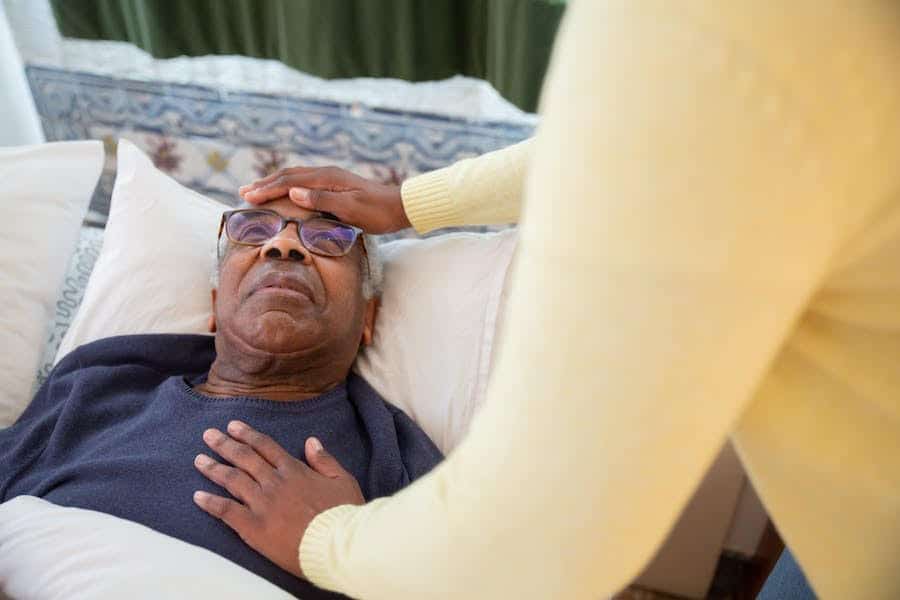The World Health Organization (WHO) policy regarding universal health coverage firmly advocates for palliative rehabilitation and palliative care as integral facets of high-quality healthcare services. And it emphasises the importance of seamlessly integrating these two essential components into healthcare systems and employing a diverse team of healthcare professionals.
The marriage of palliative rehabilitation and palliative care within healthcare promises numerous advantages for individuals and healthcare systems alike. In this article, you’ll discover the importance of palliative rehab and its valuable benefits.
The Dire Need for Better Palliative Care
As our world grapples with ageing populations and the rising burden of chronic illness, we face a profound challenge. By the year 2060, the number of individuals globally living with disabilities and enduring the hardships of terminal illness is projected to nearly double. In Singapore, the situation is no different.
Amid this mounting crisis, palliative care emerges as a beacon of hope. It is a force dedicated to enhancing the quality of life for those grappling with life-limiting ailments and their loved ones. With the primary mission of preventing and alleviating suffering, it’s a continuum of care that spans from diagnosis to the final moments.
At its core, palliative care hinges on the timely recognition, evaluation, and treatment of physical, psychosocial, and spiritual distress. Astonishingly, each year, a staggering 40 million individuals worldwide find themselves in need of palliative care. However, the bitter truth is that only a fraction—approximately 14% worldwide—receive the care they desperately require.
The suffering that accompanies advanced illness often emerges from a disheartening decline in functional abilities. And accompanied by the loss of familiar roles, independence, and a sense of dignity. Yet, amidst this adversity, there lies a powerful ally: rehabilitation.
Within palliative care, rehabilitation emerges as a transformative force. It grants individuals with incurable conditions the tools to actively manage their health, alleviate symptoms, and preserve their independence and social engagement. As such, this empowerment journey paves the way for an enhanced quality of life, right up to life’s final moments. It’s a shared responsibility. A commitment to being “function-focused” in alleviating suffering and maximising the quality of life for those facing life’s most challenging moments.
What Is Palliative Rehab?
Rehabilitation is a powerful set of interventions meticulously crafted to optimise an individual’s functioning. At the same time. it reduces disability, all within the context of its unique environment. At its core, rehabilitation is the compass guiding individuals toward unlocking their full potential. It employs an array of strategies to attain and sustain optimal day-to-day functioning.
This journey often entails a dynamic problem-solving process, intricately tailored to align with the individual’s priorities, needs, and aspirations. Many health conditions usher in the challenge of compromised functioning. Mainly, they stem from impairments in bodily functions (like pain or muscle weakness), limitations in daily activities (such as self-care or walking), and restrictions in participating fully in life (like community engagement or work).
In our evolving healthcare landscape, advances in treatments have ushered in a new reality. Now individuals are not only living longer but also facing the complexities of multiple long-term conditions, often accompanied by life-limiting disabilities. The burden of disease is no longer solely measured by premature deaths; it extends to encompass the time spent grappling with disabilities.
Those with advanced diseases often find themselves navigating swiftly changing personal and clinical landscapes. As their health deteriorates over time, their goals and needs, especially those tied to their day-to-day functioning, undergo profound transformations. As a result, this journey demands regular reviews. In many instances, rehabilitation becomes a precious aid. It allows individuals to embrace life as comfortably and completely as possible, even in the face of mortality. Furthermore, rehabilitation extends its caring embrace to families, providing vital support in their caregiving roles.
Palliative Rehab Interventions
Within the realm of palliative care, a rich tapestry of rehabilitation interventions awaits integration. Each intervention is designed to enhance the lives of individuals facing challenging circumstances. Among the most commonly employed rehabilitation interventions in palliative care, we find:
- Muscle strengthening and range of movement exercises to bolster physical resilience
- Strategic positioning aimed at facilitating functioning, alleviating pain, managing edema, and preventing contractures and pressure sores
- Training in daily activities and mobility to regain independence
- Modifications to the home environment to enhance comfort and accessibility
- Provision and training in assistive devices to empower self-sufficiency
- Caregiver training to support the needs of both patients and their families
- Increased social interaction and participation by adapting activities to individual capabilities
Impact of Palliative Rehab
The incredible impact of rehabilitation extends across a diverse spectrum of conditions. It benefits those living with advanced cancer, respiratory ailments, cardiac issues, chronic kidney disease, frailty, and dementia. The transformative outcomes encompass:
- Diminished distress associated with fatigue, breathlessness, and pain
- Mitigated interference of symptoms with daily activities and roles
- Preserved or enhanced physical fitness for everyday functionality
- Positive experiences and outcomes that transcend mere physical improvements
- Enhanced psychological well-being, encompassing heightened confidence, security, and hope
- Meaningful social support, fostering a sense of connection and belonging
In the realm of rehabilitation within palliative care, these interventions form the bedrock of comprehensive support, enriching the lives of those facing profound challenges.
The Multifaceted Benefits of Palliative Rehab
Unlocking the potential of integrating rehabilitation into palliative care offers a path toward universal health coverage. This is where both essential services are readily available across care settings. While strides have been made in weaving rehabilitation into the fabric of care for chronic respiratory conditions, strokes, and cardiac ailments. The landscape within palliative care often remains underdeveloped.
Embracing this integration presents an opportunity to amplify healthcare access, elevate its quality, and bolster efficiency. Financially, it proves sound, as it not only enhances a person’s health and functionality but also holds the potential to prevent secondary conditions, thus reducing the need for further palliative care. At its core, the fusion of rehabilitation and palliative care enables the provision of holistic, high-quality care.
The prospective advantages of integrating rehabilitation into palliative care are multifaceted:
- Timely access to rehabilitation when indicated
- Enhanced care coordination through the engagement of multi-professional teams in assessments, care planning, and delivery
- Heightened attention to the impact of health conditions on daily functioning
- A more holistic, inclusive approach to identifying person-centred outcomes
- Improved care experiences for individuals with advanced illnesses and their families
- The potential for cost efficiencies within healthcare services
Conclusion
As we’ve explored, rehabilitation is a dynamic force. It aims to optimise functionality, reduce disability, and empower individuals to lead their fullest lives. On the other hand, palliative care is a compassionate embrace. It is dedicated to alleviating suffering and enhancing the quality of life for those with life-limiting illnesses. The blending of these two domains unlocks a new realm of holistic, person-centred care. It addresses the physical, emotional, and social dimensions of health.
The journey of integrating rehab and palliative care is not without its challenges. And the potential benefits are immense. These include timely rehabilitation interventions, better care coordination, and a heightened focus on daily functioning. And a more inclusive approach to individualised outcomes is just one of the rewards. Most importantly, this merger redefines the healthcare experience for those navigating advanced illnesses, offering comfort, dignity, and hope.
At Lifeweavers, we’re all about enhancing your quality of life. Discover your options. Find out how you can live well and continue doing what is meaningful.
We are open to direct referral to our therapy services and are happy to discuss your cases. An





